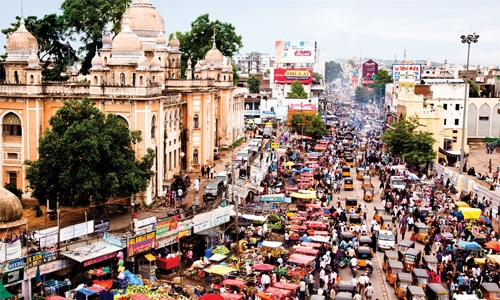India jumps to 100 in ease of doing business
New Delhi : India broke into the top 100 in the World Bank’s Ease of Doing Business rankings, notching up the biggest improvement among all countries on the back of big gains on a number of measures. The rise to the 100th position from 130 last year made India one of the top 10 best-improved countries and rounded off a day of good news on the economic front for the government.
The Narendra Modi government had, on coming to power in 2014, set itself a target of breaking into the top 50 from 142 that year.
“I remember in the very first year the prime minister had said our target should immediately be to take India into the first 50,” finance minister Arun Jaitley said. “I believe this is doable and therefore these remaining three-four areas where work has to be done, we will be pushing it with all the greater force.” The rise in ranking will help boost the government’s mission to raise overseas investment as part of efforts to revive the economy.
“India is the only large country this year to have achieved such a significant shift,” the World Bank said in a statement, attributing the improvement to sustained business reforms over the past several years. ET had reported on Monday that India expected a big jump in the rankings, possibly breaking into the top 100, thanks to multiple reforms initiated by the government beginning to show results.
Commerce and industry minister Suresh Prabhu said, “This is just the beginning. He (PM) has initiated a number of measures which may not have been captured in this particular ranking study, so in the next few years we will see it improving again and again.”
The World Bank’s ‘Doing Business 2018 — Reforming to Create Jobs’ report ranks 190 countries on the basis of a combined score on 10 parameters.
India notched up improvement in rank in six of these measures. The report captures reforms in the period between June 2, 2016 and June 1, 2017.
“This sends a huge message to the entire investor community,” said Ramesh Abhishek, secretary, Department of Industrial Policy and Promotion (DIPP). “It is a real breakthrough in terms of ease of doing business in India... The recognition by the World Bank is the ultimate assurance for the investor.”
The rankings were unveiled after the government announced earlier on Tuesday that the core sector grew at a six-month high of 5.2% in September and that the fiscal deficit had improved to 91.3% of the budget estimate at the end of September from 96.1% at the end of August as revenues picked up pace.
India’s best performance is on protecting minority investors, where it ranks fourth in the world. The ranking doesn’t include the impact of the goods and services tax, which debuted on July 1.
The World Bank considers a reform only when it becomes operational and not when announced. Last year, the country’s ranking remained unchanged at 130 as many of the reforms were still being implemented.
India’s combined, or distance-to-frontier (DTF), score rose to 60.76 in 2018 from 56.05 in the previous year, which shows the country improved in absolute terms as well. Industry said the rise in ranking reflected the Modi government’s reform drive.
The “prime minister undertook a moonshot challenge to improve India’s rank and he has delivered through proactive leadership and constant monitoring with the rank going up from 130 to 100 within a year. This imparts a huge fillip to investors that the reform process is on track and would continue to be addressed intensively”, said Confederation of Indian Industry president Shobana Kamineni.
“The government has strategically addressed choke points of the business ecosystem in a mission mode to improve India’s rank and break into the list of top reforming nations. With the active participation of the states, industry is seeing visible impact at the grassroots in the investment climate.”
The World Bank said India had adopted 37 reforms since 2003 but nearly half of these were implemented in the last four years.
“India is closing the gap between international best practices. It is a clear signal that not only has the country been open for business but it is also competing for the preferred place for doing business,” said Annette Dixon, vice-president, South Asia region, World Bank.
Related Posts

